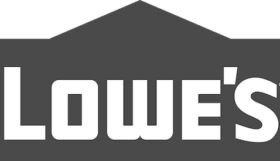FCC Votes to Bridge Digital Divide
 Last Thursday the Federal Communications Commission voted to consider permitting eligible Americans to purchase Internet access using government funds. The vote is a step toward bridging the growing digtal divide. The poor and minorities without Internet access are being left out of the expanding Internet economy
Last Thursday the Federal Communications Commission voted to consider permitting eligible Americans to purchase Internet access using government funds. The vote is a step toward bridging the growing digtal divide. The poor and minorities without Internet access are being left out of the expanding Internet economy
In a 3-2 vote, the agency began the process of expanding its Lifeline program. The Reagan era program provides $9.25 per month to Americans who meet income requirements or who already receive some form of federal assistance. The money was intended to buy telephone or cellphone service. Recipients could also apply the subsidy toward Internet access but only if it came bundled with telephone or cellphone service. The FCC vote could allow the money to be used for stand alone Internet plans that aren’t tied to telephone packages in the program.
Broadband Internet access is becoming more and more important. According to CNBC nearly 30 percent of Americans are without broadband access at home. That 30 percent is usually the lowest income demographic and predominately black and Hispanic exasperating the digital divide.
John Horrigan, senior researcher on Internet and technology at Pew Research Center pointed out the specifics of the digital divide. “We have 29 million households in the country with school-age children. Of that, 5 million do not have broadband at home,” said Horrigan. “And within that 5 million, African-American and Hispanic households are disproportionately represented.”
Thirty eight percent of African-American households with school age children earning less than $50,000 annually are without broadband access. That number drops to 13 percent above the $50,000 level. Among households earning below $25,000 per year nearly half, 46 percent, are without Internet access at home.
FCC commissioner Jessica Rosenworcel pointed out that Internet access has become an educational issue. Nearly seven in ten teachers assign homework that requires students to be online. “Students who lack regular broadband access are struggling to keep up,” said Rosenworcel, “Now is not a moment too soon, because this is about the future.” Most of these students, again, are black, hispanic and poor. Improved Internet access makes a difference beyond the classroom. Many employers are now only accepting job applications online. A lack of Internet access or skills deprives many minorities of access to available employment.
The world’s economy is becoming more and more reliant on the Internet. The current FCC board recognizes that ensuring equality of Internet access is an important priority. The board’s decison regarding net neurality and this action reflect its attitude toward a more open and accessible Internet.
“Today begins a proceeding to spend ratepayers’ money more wisely, to deliver 21st-century benefits to deserving recipients, and to get to the heart of the historic issues that have haunted this program’s efficiency,” said FCC Chairman Tom Wheeler.
Internet service providers that offer broadband under the Lifeline plan may have to offer a basic level of service and speed. The proposal also lifts the burden of verifying elegibility for the Lifeline benefit from ISPs.
The actual dollar value of the credit would not increase for the Lifeline service. Last year 12 million Americans were served by the Lifeline program. Republican members of the board argued that the plan would be too costly. “I am open to having a conversation about including broadband in the Lifeline program,” said FCC Commissioner Ajit Pai. “But any such change must go hand in hand with the reforms that are necessary to producing a fiscally responsible program.”
Lifeline critics believe that the program is wasteful and mismanaged with some Americans recieving the service who are not eligible and others applying for the program multiple times. Some Republicans have taken to calling the phones “Obamaphones.” Odd considering it was a program that came about during the Reagan Administration.
In response to the criticism the FCC has launched a campaign to clean up and eliminate Lifeline abuse. So far the FCC has removed more than a million duplicate entries from its rolls. A series of reforms were adopted in 2012 to streamline the program. Thursday’s vote aims to expand those measures. For example, the burden of proving a customer’s eligibility for Lifeline is removed from telecom companies and handed over to a neutral third party that can handle the verification.
According to Wheeler over $1 billion in wasteful spending has been “weeded out” from Lifeline. Wheeler added that he was disappointed that mistakes by his predecessors were preventing his Republican colleagues from voting with him on the proposal.
“I am befuddled at how this Republican-developed program has suddenly become so partisan,” said Wheeler. “But I am proud to cast my vote with the majority to reform and revitalize the Lifeline program.”
Breaking It Down
A monopoly on information or information services is simply unacceptable. We cannot allow people in America, because of their income, to be left out of the information age. Keep in mind that one of the keys to economic advancement is education. Children of the poor must be able to participate in the modern education methods and technology. Access to the Internet must be as important as the telephone for these people. Why else would the Reagan administration agree to any program for the poor? Now the FCC has taken the next step and insured the right to information is met. Poor people will remain poor as long as we refuse to provide the economic opportunity that information can provide. The Internet is a tool. It is a tool of information and communication. To deny an economic tool to the poorest Americans is to deny they have a right to advance in society. They have the right to the knowledge needed to improve their condition. The FCC is doing the right thing. End the digital divide!






